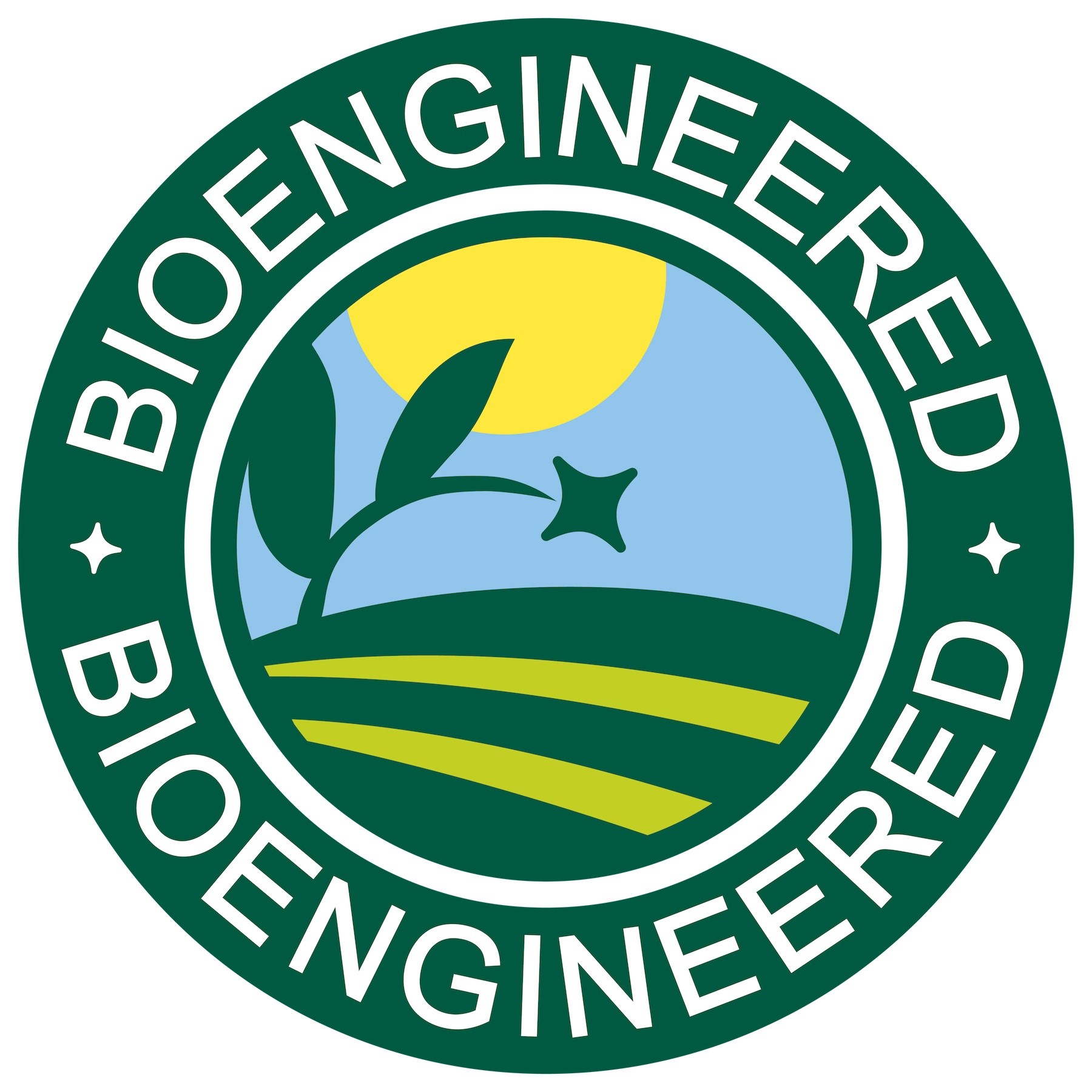Beginning January 1, food and beverage products containing genetically modified organisms will be required to bear a new Bio Engineered label issued by the USDA. Companies whose annual sales are less than $2.5 million are exempt from the mandate.
Individual companies will determine whether their products require the label, which the USDA defines as those containing “detectable genetic material that has been modified through certain lab techniques and cannot be created through conventional breeding or found in nature.”
The USDA’s law, the National Bioengineered Food Disclosure Standard, was issued in response to consumers requesting that GMO foods be labeled as such.
However, the term “bio engineered” can be confusing, says Hans Eisenbeis, director of marketing for The Non-GMO Project in Bellingham, Washington, because it doesn’t cover all GMOs, and the new labeling law lacks transparency. Other shortfalls he points out:
Under the new law, GMOs must be detectable in the end product “and that leaves out a lot of GMOs.” This includes highly refined products like sugar or cooking oil.
Products made from new techniques like gene editing, synthetic biology, and CRISPR are not included.
Products (like dairy and eggs) from cows and chickens fed GMO corn and soy beans are also not considered.
The Consumer Brands Association in Washington, D.C., supports the labeling. Kristen Scott, director of regulatory and technical affairs, told SFA News Daily that it “supports establishing a uniform regulatory framework for the disclosure of bioengineered foods and foods that include BE ingredients that promotes transparency and provides consumers with the information they need.”
However, Eisenbeis believes that “anyone who cares about GMO labeling is likely to not be happy with this new law.”
The Non-GMO Project Verified label, which was established 14 years ago and is recognized by its butterfly, remains the best indicator that a product does not contain any GMOs, he says. “And given that about 80 percent of all processed foods contain GMOs, there’s a pretty safe bet that if it doesn’t carry the butterfly, there’s some ingredient or additive in the process that contains a GMO.”
Lou Shaheen is the vice president of sales and marketing at Trans-Ocean, which has five lines of seafood products including Simply Surimi and Seafood Snackers. The Simply Surimi line carries The Non-GMO Project Verified butterfly logo but the other lines do not, he says.
He’s ready to add the new USDA logo to his packages by January and although he says he realizes bio-engineered foods are essential for feeding the world, the logo “does make a consumer look at [a product] and think it’s scary.” If it becomes the new normal, it will become more acceptable, he imagines.
At the same time, he’s a big proponent of The Non-GMO Project logo. “It’s brought credibility to our brand; it’s important to have someone else saying they agree with us.”
Related: Natural Grocers to Shoppers: Say 'No' to GMOs; Industry Groups File Suit Against USDA GMO Definition.

